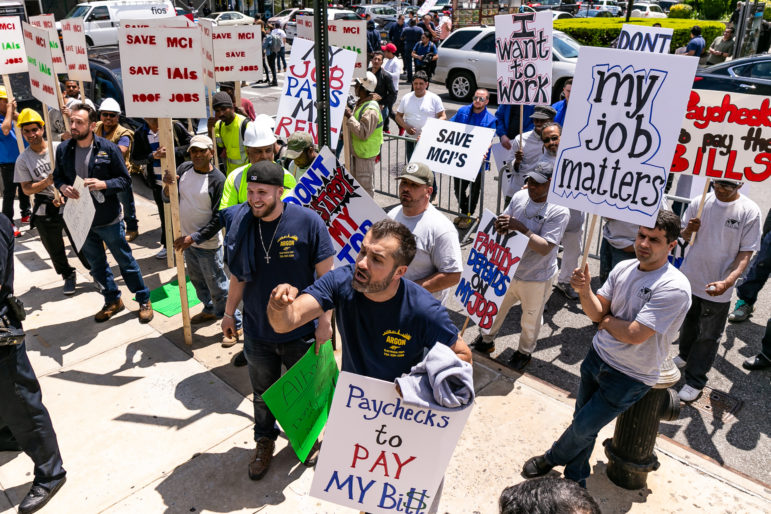
Adi Talwar
In the run up to the vote on the revised laws, contractors squared off with tenants and their allies outside a hearing about at Medgar Evers College in Brooklyn.
A little over three months ago the New York State legislature passed a sweeping overhaul of the rent-stabilization laws affecting nearly a million apartments in the city.
Vacancy decontrol was ended. Vacancy bonuses were eliminated. Landlords’ ability to raise rents after major capital improvements and individual apartment improvements was sharply curtailed. And those were just the changes that garnered headlines. Everything from the rules affecting coop conversions to the rights of mobile-home-park residents were reshaped by the new law.
Tenants declared victory. Landlords foretold a disaster.
Is reality matching those predictions? Is it too early to tell? Have government agencies caught up with the dramatic reorientation of rent policies that the legislature approved?
City Limits in partnership with the Henry George School of Social Science will discuss those questions and others on Thursday night in a panel discussion called “Rent Reform Meets Reality.” Carmen Vega-Rivera, tenant leader for Community Action for Safe Apartments; Denise Favorule, board member of the Henry George School of Social Science and broker for the Corcoran Group; Frank Ricci, director of government affairs for the Rent Stabilization Association; and Tom Waters, housing policy Analyst for the Community Service Society of New York will join moderator and City Limits executive editor Jarrett Murphy for a 90-minute discussion about the impact of the law so far, and the hopes and fears people carry into the next stage of implementation.
Tickets for the 6 p.m. event are still available here. You can also catch the live broadcast of the event on our Facebook page.



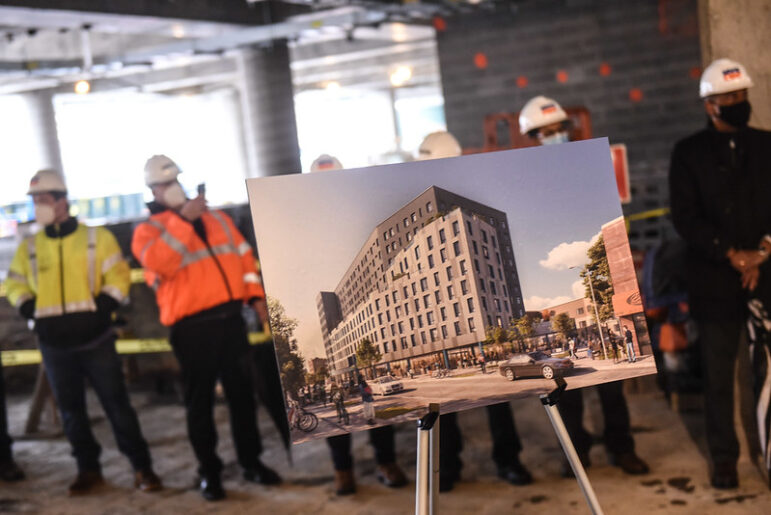
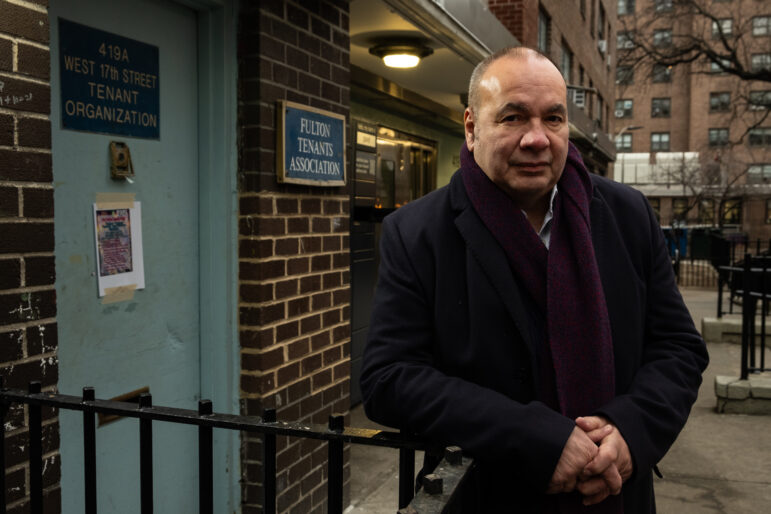
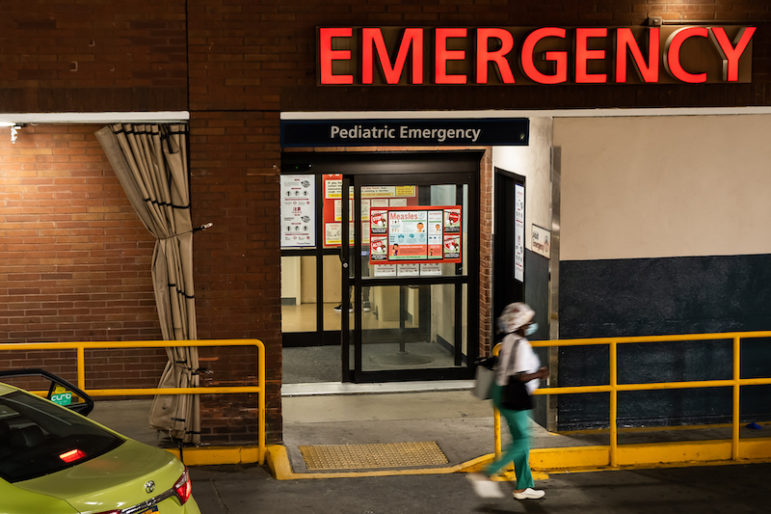
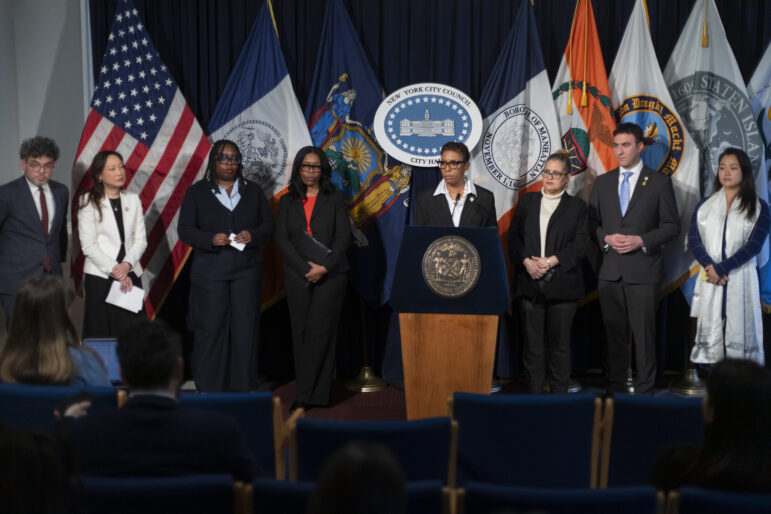


6 thoughts on “There Was a Dramatic Rewriting of the Rent Laws. What’s the Impact Been?”
The results are devastating already. NYC is over they had two decades and then they pulled the strings too far. These so-called lawmakers have no idea what the business entails. They have essentially killed value and quality of life for all NYC residents for generations to come, and killing tax revenue and city services. They all need to be prosecuted for genocide.
Genocide?
It is far too early to tell anything substantive. We know that rent control over the long term reduces housing availability and forces not rent-controlled tenants to subsidise those who already have secure tenancy. Rent control is absolutely the opposite of what the housing market needs. Rent control privileges past and existing uses of land at the expense of potential future uses and current and future needs. It ultimately drives quality down and price up, but that doesn’t happen in only three months.
Land values are a function of the demand for the use of valuable locations, and we as a society should not want rents to be kept low; rather, we should want rents to rise to the maximum the market can bear, and the surplus value of location privilege to be equitably distributed by reclaiming that value for the community.
Rent control is always bad because it distorts the market for the use of land by artificially limiting the price of using land. Land values are determined by aggregate demand, and the only way that land tenure can be efficiently allocated is if rents are allowed to rise to whatever price the market will bear.
Rising rents induce increases of supply which lower rents. Artificially limiting rents limits supply, which raises rents. Artificially limiting building limits supply, which raises rents.
The only people who think rent control is a good idea are people who don’t understand elementary economic principles like supply and demand.
Land is a natural monopoly–even in a vertical city, there are limits to how much supply can be created. The rules of supply and demand don’t apply nearly as perfectly as you’re suggesting.
All the tenants will yell and scream for even lower rents.
Tenants have no idea how much it costs to operate and maintain an apartment
building in NYC. It benefits zero existing tenants that vacancy decontrol ended. Zilch.
In Manhattan, where stabilized rents are often 1/3rd of market rents, vacated apartments
will not be renovated and rented. Landlords will just wait for better times.
Pingback: October 11, 2019 - Weekly News Roundup - New York, Manhattan, and Roosevelt Island | Manhattan Community Board 8
Pingback: Will 'Joker' Steps Lead to Gentrification in the South Bronx?